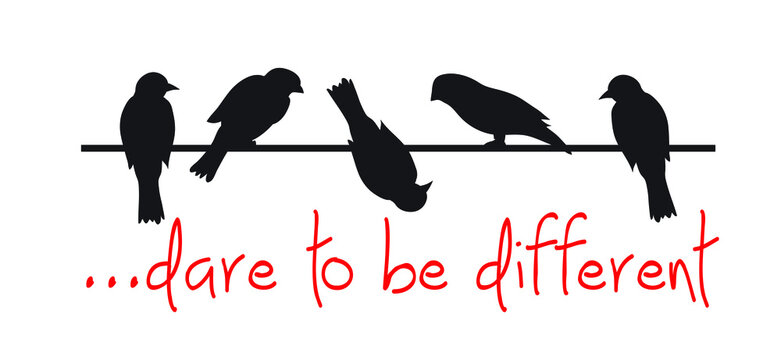I believe that when I trade well, shooting fish in a barrel is a perfect description. Everything works. I don’t need to be excessively patient with my positions. The money comes in very quickly. Trading should be like this. It was the opposite throughout the first two months of this year. So I performed the only alternative. I acknowledged there was no way to improve my portfolio and acknowledged that my attempts had not been effective. It was similar to folding in poker when you get a terrible hand. Thus, I folded. Now I’m waiting for the subsequent hand. If it is a bad one, I’ll fold again. If a few of my trades begin to go my way, I’ll push the envelope and intensify my risk exposure and trade aggressively.
Archives of “Education” category
rssThe Disconcerting Effect of Sudden Losses and Gains– #AnirudhSethi
The act of suddenly winning or losing large sums of money is very unbalancing to the mind. A few years ago, I was at Monte Carlo in the company of a well-known businessman. Every day, he would play roulette just for fun, as he was normally methodical, conservative, temperate, and cool-headed. He was a mature man and adhered to an unalterable rule to keep his losses at $200 per sitting, so he would always stop playing if he lost his money. He normally gambled two dollars on the numbers, and he would not double them until one turn of the wheel when his number won. He usually played three numbers at once; never more than four. For ten consecutive sittings, he lost his $200 stake every time. I saw him get up and leave the room in apparent disgust. An hour or so later I saw him at a roulette table in another room, stacking his chips on a dozen or more numbers. As a result, if he exceeded the limit, the watchful croupier would reduce his bets and push some disks back to him. In addition to betting on the numbers, he placed a thousand-franc bet on one of the three rows, a second thousand on the colors, and a like amount on the middle dozen. In one run, he lost seventeen consecutive bets on red, each of which cost him a thousand franc. His eyes were bloodshot, his fingers twitched, and he was obviously in a state of great distress. He continued to play for about three hours, at which point he suddenly got up, looked dazed for a moment, then left the table. He said that he lost $20,000, but he had no recollection of anything that happened during the game nor of the amount he was betting. It is a well-known fact that many rich men send printed cards to the proprietor of a well-known gambling club in the South, directing
The act of sudden winning or losing of large sums of money is extremely disbalancing to the mind. Monte Carlo a few years ago, I was in the company of a well-known business man who frequently played roulette as a pastime. He was calm, conservative, temperate, and cool-headed, and he always limited his losses to $200. When his wager was lost, he quit gambling. He usually bet two dollars on the numbers, and a single turn of the wheel was the only instance when his number won. He usually bet on three numbers, never more than four. For ten consecutive sittings, he lost $200 every time. When he left the room in a huff, I saw him gambling at a roulette table in another room. When he surpassed the limit, the watchful croupier would push back a few discs. In addition to staking a thousand franc note on one of the three columns and a thousand franc note on the colors, he was staking another thousand franc note on the center dozen. For one run, he lost seventeen consecutive bets on red, which cost him a thousand franc each. His eyes were bloodshot, his hands twitched, and he was obviously in a state of great agitation. After playing for three hours or so, he abruptly got up, stood in dazed silence for a moment, then left the table. Twenty thousand dollars were lost, and he had no recollection of anything that happened on the table, nor did he realize the amount he was betting. It is not widely known that rich men frequently send printed cards of instructions to the proprietor of a well-known gambling club in the South, directing him to refuse them further credit and to stop their play. If stock-market traders imposed similar restrictions on their dealings, losses would be greatly reduced.
Focus on Decisions, Not Outcomes –#AnirudhSethi
 Traders who are successful are able to quickly correct their mistakes because they have a better understanding of the consequences of making decisions under uncertainty. They know that it’s not always necessary to take the trade that wasn’t meant to be in order to salvage something good from the situation.They know that sometimes good ideas don’t work out, since there is always some uncertainty involved. This makes it more likely that they will be wrong some of the time. Great traders always have a reason for putting a trade on, and they always have a reason for taking a trade off. The traders in the market focus on the reasons for their trades, rather than the short-term results of those trades.
Traders who are successful are able to quickly correct their mistakes because they have a better understanding of the consequences of making decisions under uncertainty. They know that it’s not always necessary to take the trade that wasn’t meant to be in order to salvage something good from the situation.They know that sometimes good ideas don’t work out, since there is always some uncertainty involved. This makes it more likely that they will be wrong some of the time. Great traders always have a reason for putting a trade on, and they always have a reason for taking a trade off. The traders in the market focus on the reasons for their trades, rather than the short-term results of those trades.
Prepare To Be Wrong – #AnirudhSethi

Overcome Fear – #AnirudhSethi
 Great traders know that fear can sap our ability to make wise decisions, and can cause us to avoid taking chances. Fear can immobilize you when you need to act quickly and decisively to save yourself from danger – the deer-in-the-headlights syndrome. All great traders have mastered their fears and are able to act decisively under pressure.
Great traders know that fear can sap our ability to make wise decisions, and can cause us to avoid taking chances. Fear can immobilize you when you need to act quickly and decisively to save yourself from danger – the deer-in-the-headlights syndrome. All great traders have mastered their fears and are able to act decisively under pressure.
Remember the times when Tesla was leading the EV market?

Thinking about probabilities is important –#AnirudhSethi
 I think of trading as a game of probability, which has several advantages. You are getting more and more expert with your knowledge and experience, always bearing in mind that you will never be able to be always right.For example, a company’s stock is more likely to rise in price in the future (by attracting more investors, who will create more buying pressure) if the stock is at a new high (almost no oneis in loss on shares).if the stock has just broken out of a very long narrow range, if the company is profitable and growing, the growth is solid, the company is relatively undervalued on several valuation methods, the company has little debt, insightBuyers buy stocks… And even if a stock has all of these ingredients, we still can’t be 100% sure that it will rise in the future. Being More Realistic
I think of trading as a game of probability, which has several advantages. You are getting more and more expert with your knowledge and experience, always bearing in mind that you will never be able to be always right.For example, a company’s stock is more likely to rise in price in the future (by attracting more investors, who will create more buying pressure) if the stock is at a new high (almost no oneis in loss on shares).if the stock has just broken out of a very long narrow range, if the company is profitable and growing, the growth is solid, the company is relatively undervalued on several valuation methods, the company has little debt, insightBuyers buy stocks… And even if a stock has all of these ingredients, we still can’t be 100% sure that it will rise in the future. Being More Realistic
Thinking about possibilities allows us to be less subject to the available inferential bias that sometimes causes us to place so much importance on a negative event that rarely happens in reality. например If one bad trade results in us never trading breakouts again, even though the probabilities were in our favor, then that’s what we’ll do. Don’t get too emotional
If you think in terms of probability, you will be less susceptible to losing trades. Your chances were good. One trade losing does not define your success rate. If you have an advantage, you will succeed thanks to the law of large numbers. You are also less affected by a good deal. You have an advantage. It is normal for you to win sometimes, it doesn’t have to make you feel cocky.Thinking in probabilities will help you stay away from violating your stop loss rule and becoming “married” to a stock until death do us part. If a trade becomes unfavorable and loses its edge, simply consider the long-term potential of the strategy and move on to the next trade. Focus on operation
Since the odds are stacked in your favor (assuming your strategy has an edge), you need to be more process oriented rather than results focused, allowing you to be less emotional and make better trading decisions. It is a great reduction of stress to use this technique.By thinking in probabilities, you realize that sometimes, a good trade can actually cost you money and sometimes, a bad trade can make you money. The danger of making money from a bad trade is that it can reinforce or create the wrong belief that will cost you more in the future.Because you know you have an advantage in the long run, you just stick with your strategy and don’t stick with it.deviate from it by all means, so that the law of large numbers will work. That’s how casinos make money. Do you want to be the casino or the sucker? When you truly believe that trading is nothing more than a probability game, concepts like “risk” and “reward” lose their meaning.
Do the things you don’t want to do! You don’t have to do them, but you should do them anyway. Do them now! – #AnirudhSethi
 Are you currently struggling as a trader? Do you generally lose money despite having some good deals? Don’t worry. You’re not alone. you are actually the majority. It is a well-known fact that most traders lose money consistently in the markets. Trading does not escape the 20-80 Pareto principle.Just like in the start-up world, where nearly all start-ups fail.There’s a very simple rule you need to remember. If you want to get results that are different from the results of the majority, you must start doing what the majority does not. In any area where high performance is desired, the majority of people often make mistakes. Few would do different things. According to studies, only a very small number of people are inclined to do anything different.And the vast majority of people just keep on doing the same things, hitting the wall again and again. “Insanity: Doing the Same Thing Over and Over and Expecting Different Results” – Albert Einstein
Are you currently struggling as a trader? Do you generally lose money despite having some good deals? Don’t worry. You’re not alone. you are actually the majority. It is a well-known fact that most traders lose money consistently in the markets. Trading does not escape the 20-80 Pareto principle.Just like in the start-up world, where nearly all start-ups fail.There’s a very simple rule you need to remember. If you want to get results that are different from the results of the majority, you must start doing what the majority does not. In any area where high performance is desired, the majority of people often make mistakes. Few would do different things. According to studies, only a very small number of people are inclined to do anything different.And the vast majority of people just keep on doing the same things, hitting the wall again and again. “Insanity: Doing the Same Thing Over and Over and Expecting Different Results” – Albert Einstein
Doing things you don’t necessarily want to do
My own experience and much later We met with traders and identified five key questions that separate successful and unsuccessful traders.Now think about your trading and ask yourself the following questions:
– Do I take full responsibility for my results? Do I have a winning trading strategy? A backtested winning strategy or a strategy used by some of the few who actually make money consistently in the markets? Do I have written rules based on what I have observed in the past? – do I record every single trade I make?- Do I often do post analysis by looking back at past trades to see if I have made some mistakes? If you answered “no” to any of these questions, it is very likely that this is the reason why you are not making money in the market. Making any of the following sounds more emphatic can take time and can sometimes be seen as strenuous and burdensome.I can’t count the number of unsuccessful traders I know who are too lazy to come up with a well-defined strategy, write down their rules, and most importantly, do post-analysis. They often say that they do not have the time for that. We never have the time to do this. Successful people, just like everyone else, only have 24 hours in a day. They don’t have the time either.But they make the time for doing the things that need to be done in order to reach their goals. By saying I don’t have time, you’re basically saying, “I’m too lazy to do this. I would rather lose money than do what is necessary for me to succeed. You are acting like the majority by insisting that I have the time.And to have results that are different from the majority, you need to start doing things that the majority do not do. Then why are you not making any money?
5 Ways U can become Consistent Day Trader
 1. Control your impulses One of the best ways to stay consistent is to not take any random trade you want just because you’re bored. Plan your trades and wait patiently for them. If they don’t happen, theres always tomorrow. Limit your unnecessary losses.
1. Control your impulses One of the best ways to stay consistent is to not take any random trade you want just because you’re bored. Plan your trades and wait patiently for them. If they don’t happen, theres always tomorrow. Limit your unnecessary losses.
2. Don’t size up too fast Sizing up too quickly after a few good days is usually a recipe for disaster. Be patient with this and honestly take it as slow as possible. Its the best way to allow your emotions to adjust to seeing bigger numbers.
3. Let profits run Many traders cut green trades too fast, because theyre scared for it to turn red again. Results in SMALL wins. If youre in a good trade, scale some out to secure profit but let the trade play out.
4. Cut your losses Dont baghold red trades hoping for them to turn back green. Results in BIG losses most of the time. Cut trades where you plan to cut them, chances of profitability in the long run are much higher than if you constantly hold losing positions.
5. Trade the same setups. My best tip for consistency is to trade the same setup day in and day out. This way you learn this setup like the back of your hand and will be able to spot and trade it with no hesitation. Redundancy = consistency.
TRADERS AND THEIR IRRATIONAL BELIEFS
- What goes up must come down and vice versa. That’s Newton’s law, not the law of trading. And even if the market does eventually self-correct, you have no idea when it will happen. In short, there’s no point blowing up your account fighting the tape.
- You have to be smart to make money. No, what you have to be is disciplined. If you want to be smart, write a book or teach at a university. If you want to make money, listen to what the market is telling you and trade to make money — not to be “right.”
- Making money is hard. Nope. Sorry. Making money is actually easy. Statistically, you’re going to do it about half the time. Keeping it, now that’s the hard part.
- I have to have a high winning percentage to be profitable. Not true. How often you are right on a trade is only half of the equation. The other half is how much do you make when you’re right and how much you lose when you’re wrong. You can remember that with this formula: Probability (odds of it going up or down) x Magnitude (how much it goes up or down) = Profitability.
- To be successful, I have to trade without emotions. That is both wrong and impossible. You are human so you have emotions. Emotions can be a powerful motivator to your trading.


